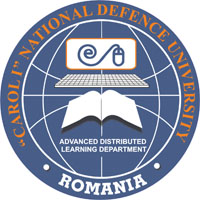SERIOUS GAMES: OXYMORON OR OPPORTUNITY TO INCREASE THE INTEREST TOWARDS EDUCATION AND LEARNING?
SERIOUS GAMES: OXYMORON OR OPPORTUNITY TO INCREASE THE INTEREST TOWARDS EDUCATION AND LEARNING?
Author(s): Tulia Maria CăşveanSubject(s): Education
Published by: Carol I National Defence University Publishing House
Keywords: video games; engagement; serious games; e-Learning; education
Summary/Abstract: Since the acceleration of the new technologies development and the telecom portability, a totally different approach of the video games studies is observed. The latest academic analyses and researches clearly differentiate them from the out of the "real world" escapism, being focused rather on the meanings and on the utility of the video games which are currently more and more connected with the social and the materiality of the everyday reality. The huge number of players and the democratization of the access to the technology allowed video games to became a medium that conveys knowledge, creating, in the recent years, a fast growing market (Alvarez and Michaud 2008; Susi et al., 2007) for educational video games (serious games). However, the specific literature lacks overviews of the possibilities of using distinctive features of the videogames (engagement, feedback, context, prior or related knowledge embedment) also in the serious games in order to increase players’ interest for learning and education. The structural and functional specifics of the video games, combined with well-built narrative elements lead to strong engagement of the players towards the proposed topics. Moreover, stressing similar "success recipes" as in videogames could highlight the serious games attractiveness, enhancing players’ interest for learning. The objective of this paper is to find, in the general context of videogames evolution, new approaches that may expend the current usage of the serious games in larger number of the education fields, driving new ways of improving the learning. The main propose of the paper is to provoke discussions and inspire critical approaches that could bridge theory and practice.
Journal: Conference proceedings of »eLearning and Software for Education« (eLSE)
- Issue Year: 11/2015
- Issue No: 02
- Page Range: 41-49
- Page Count: 9

